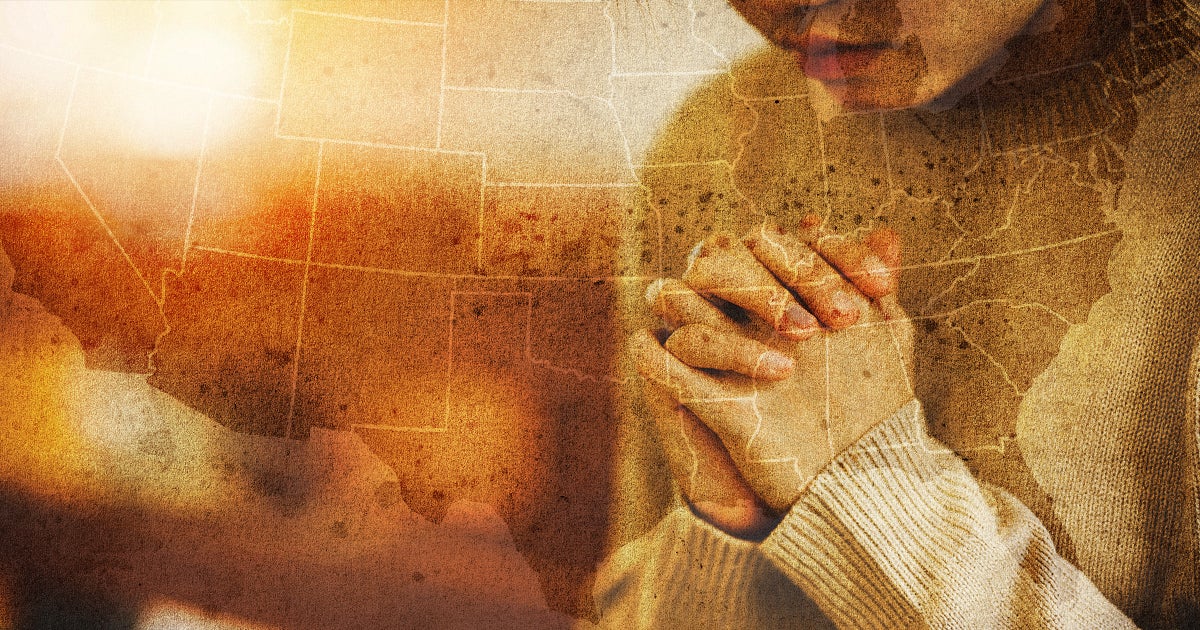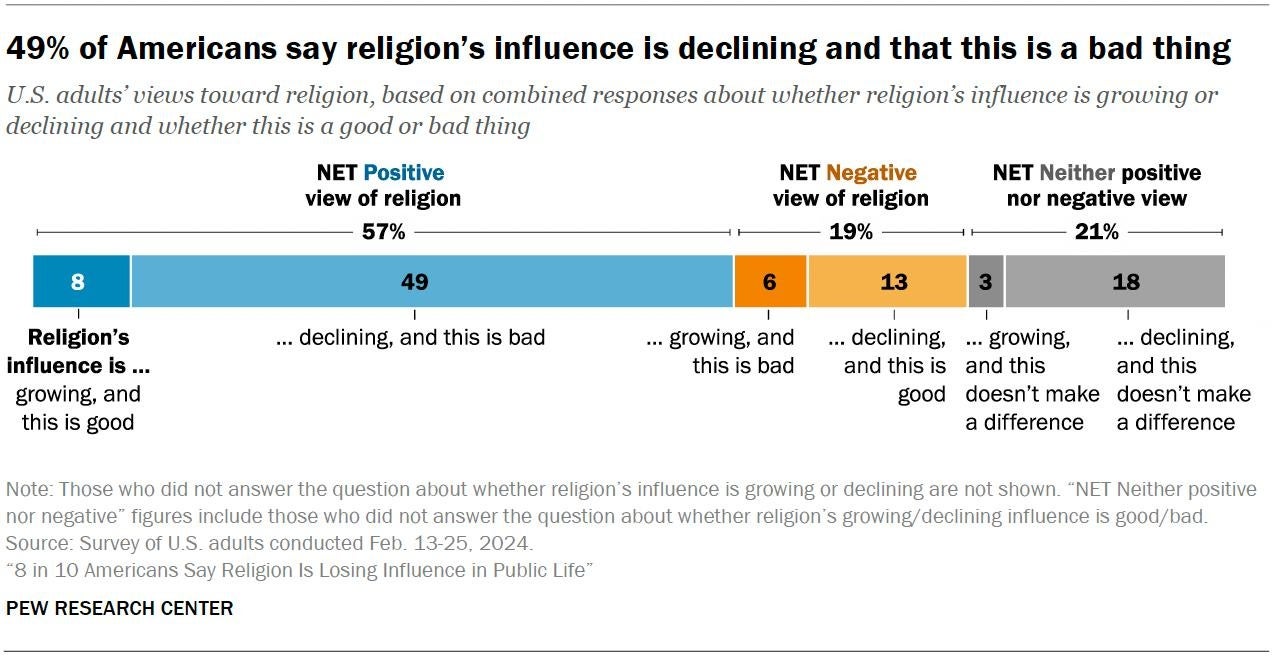
Logan Tantibanchachai and Jorge Gomez • 6 minutes
Do you think religion is declining in America?
According to a recent Pew Research Center report, 8-in-10 Americans say religion is losing influence in public life. Many of us are well aware of this downward trend.
But additional findings in the report are hopeful.
A strong majority of Americans—57%—believe that religion has a positive influence on public life. Nearly 50% of Americans think the decline of religious influence in our country is a bad thing.
Looking at the numbers, less than 20% view religion negatively. And an even smaller share—only 13%—view the decline of religion as a good thing.

At a time when faith and the free exercise of religion are under constant attack, the results of this Pew Report offer us tremendous encouragement.
Right now, we are at a turning point. Something special is happening in our nation when it comes to religious liberty. And we think it has a lot do with a remarkable string of victories favoring religious freedom. Over the past few years, First Liberty has won several groundbreaking cases at the U.S. Supreme Court that give Americans more religious freedom than they’ve had in 50 years.
This seismic change in the law goes back five years, with First Liberty’s precedent-setting victory in the Bladensburg Peace Cross case. The Supreme Court’s ruling in The American Legion v American Humanist Association upheld the memorial as constitutional, saved the Peace Cross from destruction, and set a precedent protecting public religious displays throughout the country. Historic displays with religious references and imagery should be seen as “presumptively constitutional,” the Court held. For cases involving religious displays, the Court would apply a more constitutionally faithful “history and tradition” test.
That victory was bolstered in 2022, when the Supreme Court ruled in favor of Coach Joe Kennedy and his right to take a knee in a quiet, personal prayer following football games. Coach Kennedy’s victory was precedent-setting for religious freedom. This victory has had a nationwide impact on public school teachers, employees and coaches. Moreover, in overturning a fifty year old precedent that had misinterpreted the Establishment Clause, the Supreme Court’s decision in Kennedy made clear that any such challenges would now be viewed based upon history and tradition.
In our Treat Children Fairly case, Carson v. Makin, First Liberty and the Institute for Justice challenged a Maine law that banned families from participating in a student-aid program if they choose to send their children to religious schools. In 2022, the Supreme Court ruled that the exclusion is unconstitutional. This landmark victory affirmed that states can’t discriminate in student-aid programs against parents who want to send their children to religious schools. It was also a huge win to help ensure equal treatment of all religious organizations.
This momentum carried on. Just a year later, The Supreme Court unanimously ruled in favor of First Liberty’s client, Gerald Groff. That ruling changed the legal standard for religious accommodation at work. It set a precedent that fortified legal protections for religious employees, and the impact is already being felt in workplaces, companies and government employers all across America.
However, these decisions were just the tip of the iceberg. Let’s not lose sight of other incredible triumphs for religious liberty we’ve witnessed in just the past five years. Recall these major Supreme Court decisions:
With this incredible momentum for religious freedom, is it any coincidence that most Americans are starting to see that religion can be a force for good? We don’t think so.
Pew’s recent findings offer us significant hope for the future. They show us that we can change the direction of our country. When we succeed at changing the laws, it’s clear that we can also succeed at changing the culture.
Even still, we can’t let our guard down. Opponents of religious freedom realize that from coast-to-coast, faith and liberty are making a revival. And they’ve only increased and intensified their attacks on our fundamental freedom.
We have many victories to celebrate. But we have a lot of work ahead and many more battles yet to be won. We face intense opposition, so it’s up to us to walk through the doors that God is opening—and continue fighting the good fight.
Will you join First Liberty so we can continue reclaiming our nation’s heritage of religious expression and restoring the freedoms that were stripped away?